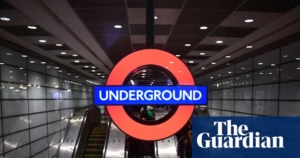Urgency for Processing Syrian Asylum Applications Grows as Thousands Remain in Limbo
Ministers face increasing pressure to restart processing of Syrian asylum applications, with figures revealing over 7,000 individuals still awaiting decisions. The UK halted decisions on Syrian asylum and permanent settlement claims in December following the fall of President Bashar al-Assad, leaving many Syrians uncertain about their future status.
Charities, such as the Refugee Council, criticize the current situation, labeling it as an “indefinite limbo” and urging for claims to be reassessed on a case-by-case basis. The government argues the decisions were paused due to the lack of stable and reliable information to assess the risks for those potentially returning to Syria, emphasizing the policy remains under constant review.
As of the end of March, 7,386 Syrians were waiting for an initial decision on their asylum claim, according to recent statistics. The political situation in Syria remains uncertain since the ousting of Assad’s regime by rebel forces led by the militant group Hayat Tahrir al-Sham (HTS) in December, with HTS still classified as a terrorist organization by the UK.
Although many Syrians fled due to Assad’s rule, concerns about safety for those in exile remain, especially for individuals fearing persecution from the current regime or opposing groups. The government initially suggested that most Syrian asylum claims were linked to the Assad regime and that individuals could return once it was safe. However, Syrian visa holders argue that their fear of return stems from future democratic uncertainties and the non-recognition of basic rights under the Assad regime.
The pause on asylum applications has led to an 81% decrease in claims; however, 299 Syrians still arrived in the UK via small boats in the first three months of the year. Syrians, many of whom are already in government-funded accommodation, are usually unable to work while their cases are being assessed, leading to concerns about their integration and the associated costs to the taxpayers.
The Labour government’s pledge to clear the asylum claim backlog has been welcomed as a possible solution to the current blockage. Personal stories highlight the distress of those waiting, such as a visa holder who seeks to work and contribute to the economy but is hindered by the current immobility of their status. The safety concerns, especially for Kurds and the broader uncertainty about Syria’s future, cast doubt on potential returns.
Furthermore, the ongoing uncertainty adversely affects Syrians who have already been granted refugee status and are awaiting permanent settlement rights. While they retain the right to live and work in the UK during this period, their temporary status can complicate job and housing security, adding to the anxiety about their future in the UK.
With no immediate resolution in sight for the Syrian conflict and resulting political instability, there are calls for prioritizing claims based on reasons outside the previous regime’s control. The situation underscores the urgency for a comprehensive and empathetic approach towards asylum seekers, emphasizing the need for a clear and speedy resolution to end their limbo status.
Charities, such as the Refugee Council, criticize the current situation, labeling it as an “indefinite limbo” and urging for claims to be reassessed on a case-by-case basis. The government argues the decisions were paused due to the lack of stable and reliable information to assess the risks for those potentially returning to Syria, emphasizing the policy remains under constant review.
As of the end of March, 7,386 Syrians were waiting for an initial decision on their asylum claim, according to recent statistics. The political situation in Syria remains uncertain since the ousting of Assad’s regime by rebel forces led by the militant group Hayat Tahrir al-Sham (HTS) in December, with HTS still classified as a terrorist organization by the UK.
Although many Syrians fled due to Assad’s rule, concerns about safety for those in exile remain, especially for individuals fearing persecution from the current regime or opposing groups. The government initially suggested that most Syrian asylum claims were linked to the Assad regime and that individuals could return once it was safe. However, Syrian visa holders argue that their fear of return stems from future democratic uncertainties and the non-recognition of basic rights under the Assad regime.
The pause on asylum applications has led to an 81% decrease in claims; however, 299 Syrians still arrived in the UK via small boats in the first three months of the year. Syrians, many of whom are already in government-funded accommodation, are usually unable to work while their cases are being assessed, leading to concerns about their integration and the associated costs to the taxpayers.
The Labour government’s pledge to clear the asylum claim backlog has been welcomed as a possible solution to the current blockage. Personal stories highlight the distress of those waiting, such as a visa holder who seeks to work and contribute to the economy but is hindered by the current immobility of their status. The safety concerns, especially for Kurds and the broader uncertainty about Syria’s future, cast doubt on potential returns.
Furthermore, the ongoing uncertainty adversely affects Syrians who have already been granted refugee status and are awaiting permanent settlement rights. While they retain the right to live and work in the UK during this period, their temporary status can complicate job and housing security, adding to the anxiety about their future in the UK.
With no immediate resolution in sight for the Syrian conflict and resulting political instability, there are calls for prioritizing claims based on reasons outside the previous regime’s control. The situation underscores the urgency for a comprehensive and empathetic approach towards asylum seekers, emphasizing the need for a clear and speedy resolution to end their limbo status.








